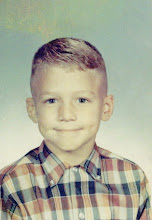(reprinted from today's Times and News-Star)
Southern and funny but more serious than sentimental, “The Help” opened No. 2 at the box office last weekend.
In kindergarten vernacular, “No. 2” actually plays a big role in the movie. But I don’t want to spoil anything, but “The Help” at No. 2 seems maybe a mild form of poetic justice, all the way around.
The movie is set in Jackson, Miss., in the Civil Rights Era of the early 1960s and adapted to screen from the 2009 novel of the same name. It serves as a cinematic reminder that any of us who grew up in the 1960s in the South didn’t leave the decade without stepping in something.
“The Help” spotlights the life of the aspiring writer Skeeter, a young white woman home in Jackson the summer after her graduation from Ole Miss, and her sudden unrehearsed calling to write a book, anonymously, about the black maids in town and what their lives are like while working for white families, often raising white children. The races are intimate, yet divided.
The stars of both book and movie are characters Aibileen Clark and the scene-stealing Minny Jackson, career maids, the “help.” I have known them both – on the surface. I have known everyone in the movie, at least on the surface.
For more than a year I’ve been told to read the book. “It’s when we grew up,” a friend said. “I mean, you’ve GOT to read it. It’s history. You were there.”
I trusted the author, Kathryn Stockett, because, though she grew up privileged, she did grow up in Jackson. So she was there. With a maid. And I was there too, although in a tiny town and with no maid. Our maid was me and my sisters and my mother.
In tobacco fields back then, we – blacks and whites, of which there were only a few -- all drank out of the same green plastic cup, with tobacco gum all over it. We were friends. And as I grew and then moved from that town, I thought I had a good understanding of what it was like to be black. This was stupid. I was there, but I didn’t know a thing and still know very little about what it was like to be black in the South in the 1960s. “The Help” reminded me of that.
So two weeks ago, I started the book. Finished on the movie’s opening Saturday and squeezed into a packed house to watch the show with an audience mixed, both in race and age, and a bit unusual for my theater experience in one respect; I haven’t seen this many white senior citizen females together since the church potluck.
When the movie was over, the audience clapped with enthusiasm, a rarity these days.
In the book’s afterword, Stockett notes this passage from Howell Raines’s “Grady’s Gift,” his Pulitzer Prize-winning essay about his family’s maid when he was a boy in Alabama:
“There is no trickier subject for the writer from the South than that of affection between a black person and a white one in the unequal world of segregation. For the dishonesty upon which a society is founded makes every emotion suspect, makes it impossible to know whether what flowed between two people was honest feeling or pity or pragmatism.”
But wisely we keep trying, and to do that, to continue to try to understand each other, stereotypes and reality, we can all use some Help.
-30-
skip to main |
skip to sidebar



"Pick me out a winner, Bobby..." - Roy Hobbs
I wish this shirt still fit
Life in the bigtime

Casey Jay, Back in the Day...

Author
Hi. Email to teddy@latech.edu Thank you for writing; I'll get it answered within the week.
Post Categories
- ... (1)
Headlines from Sports
Links
Pondering pontificators
Blog Archive
-
▼
2011
(142)
-
▼
August
(21)
- Coaching ’til The End, ‘My Man!’ Says Goodbye
- Crushed...
- The 'Real' Reality Show
- Paul Bunyan and the ... Bible?
- 'The Help' is a Good Story, for Any Age
- Steps
- Golden Nuggets From Rome (Part 8 of a series)
- Golden Nuggets From Romans (7th in a series)
- 'Taint Much Fun To Be A Turkey
- Where There's A Will, There's A Way
- Hey Jude (3rd in a series)
- Hey Jude (2nd in a series)
- Golden Nuggets from Rome: (6th in a series)
- The Healing Stream
- Golden Nuggets From Rome: (5th in a series)
- As The Platters Sang In That Hot Summer of Long Ag...
- Golden Nuggets from Rome: (4th in a series)
- Golden Nuggets from Rome: (3rd in a series)
- Golden Nuggets from Romans (Part 2 in a series)
- One of the Greatest Toys in History
- Every Man Dies Alone
-
▼
August
(21)
Copy this link into your podcast application for Teddy audio
- http://www.publicbroadcasting.net/rrr/.jukebox?action=viewPodcast&podcastId=1600